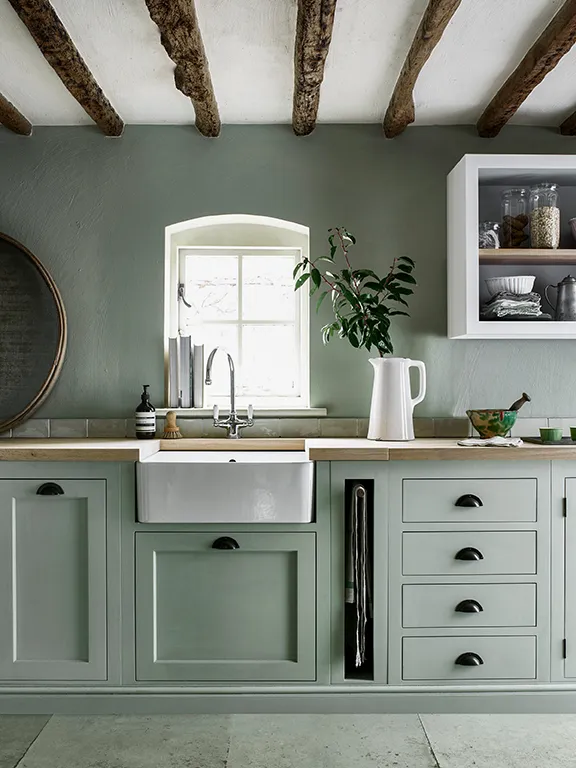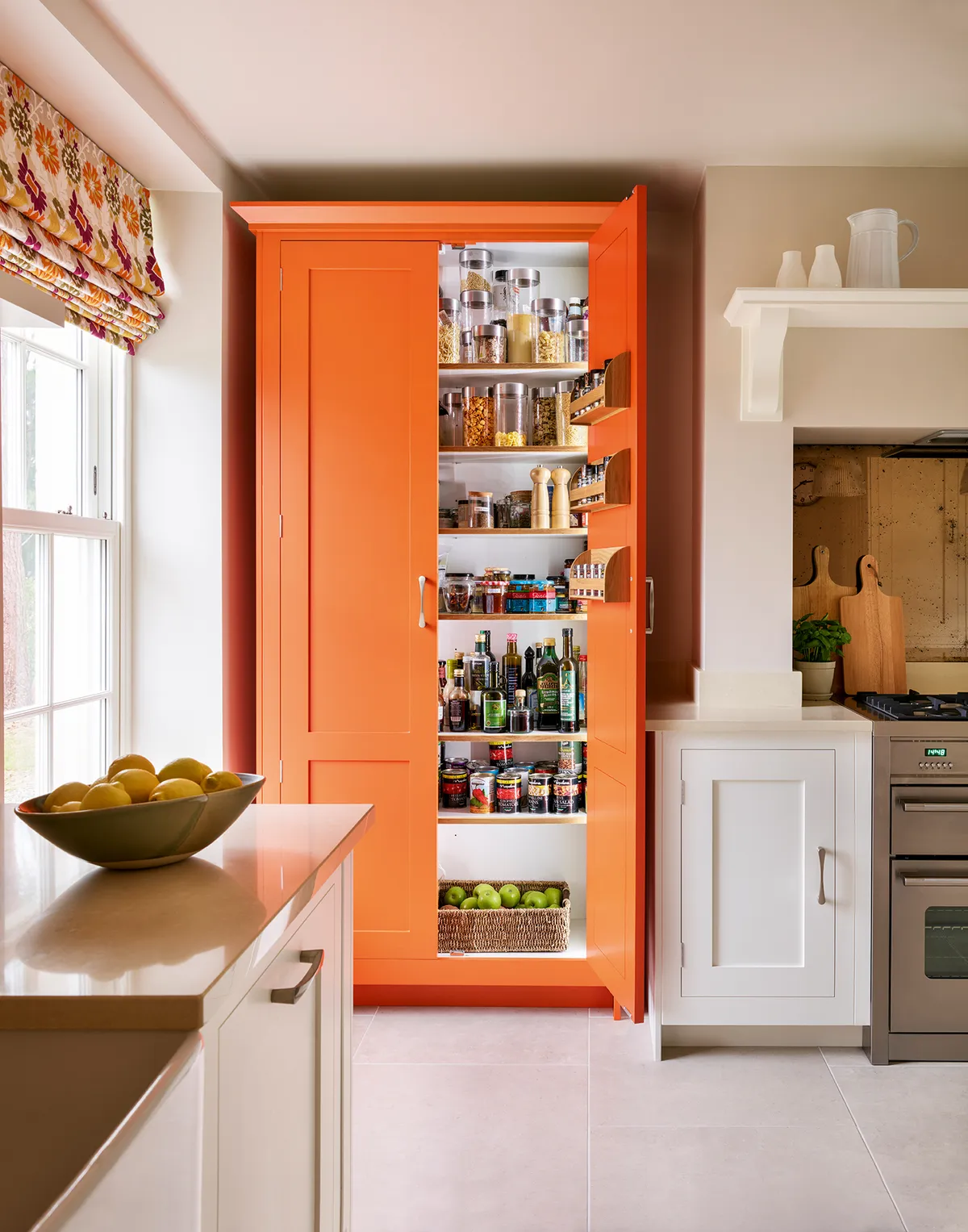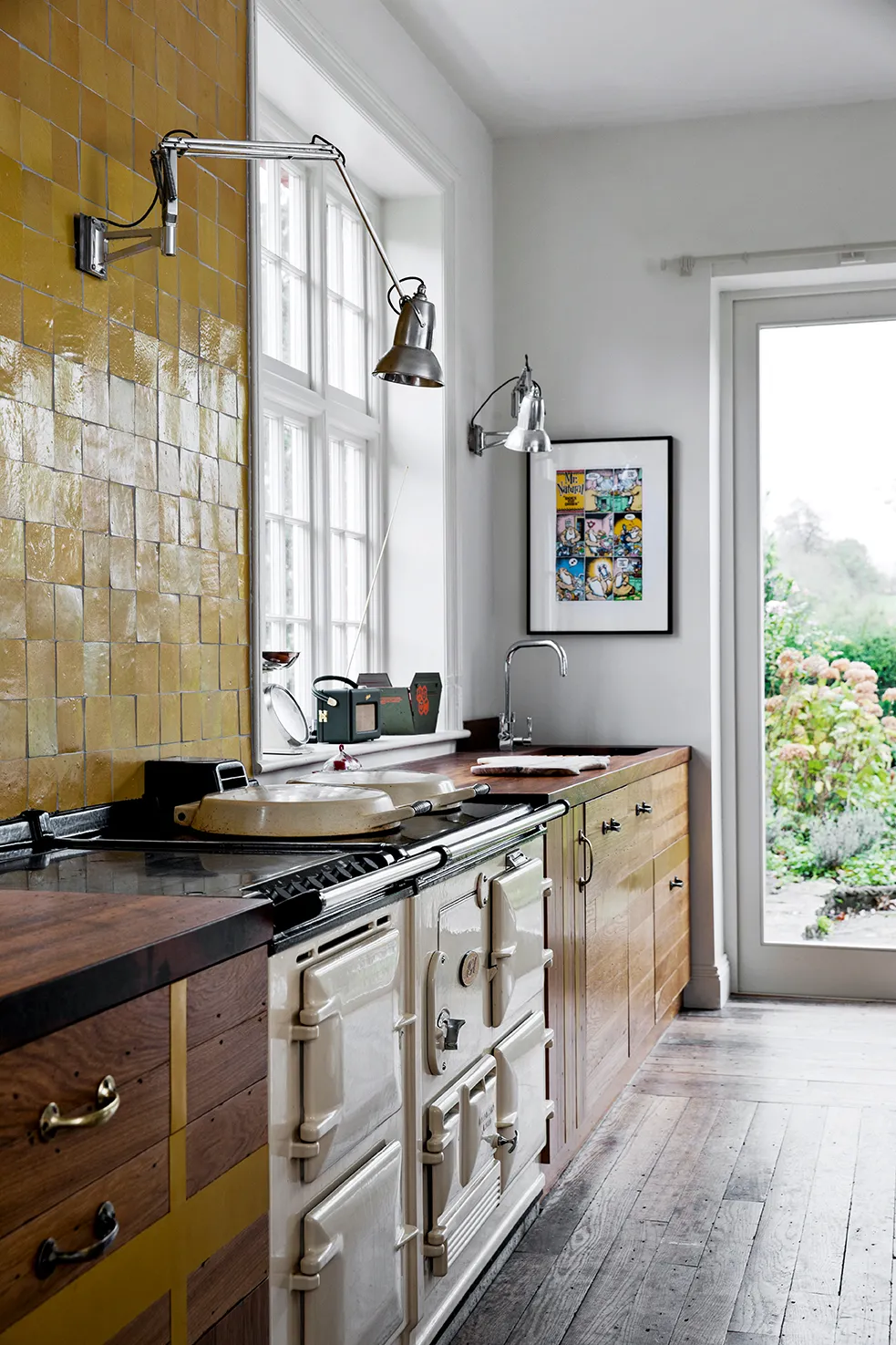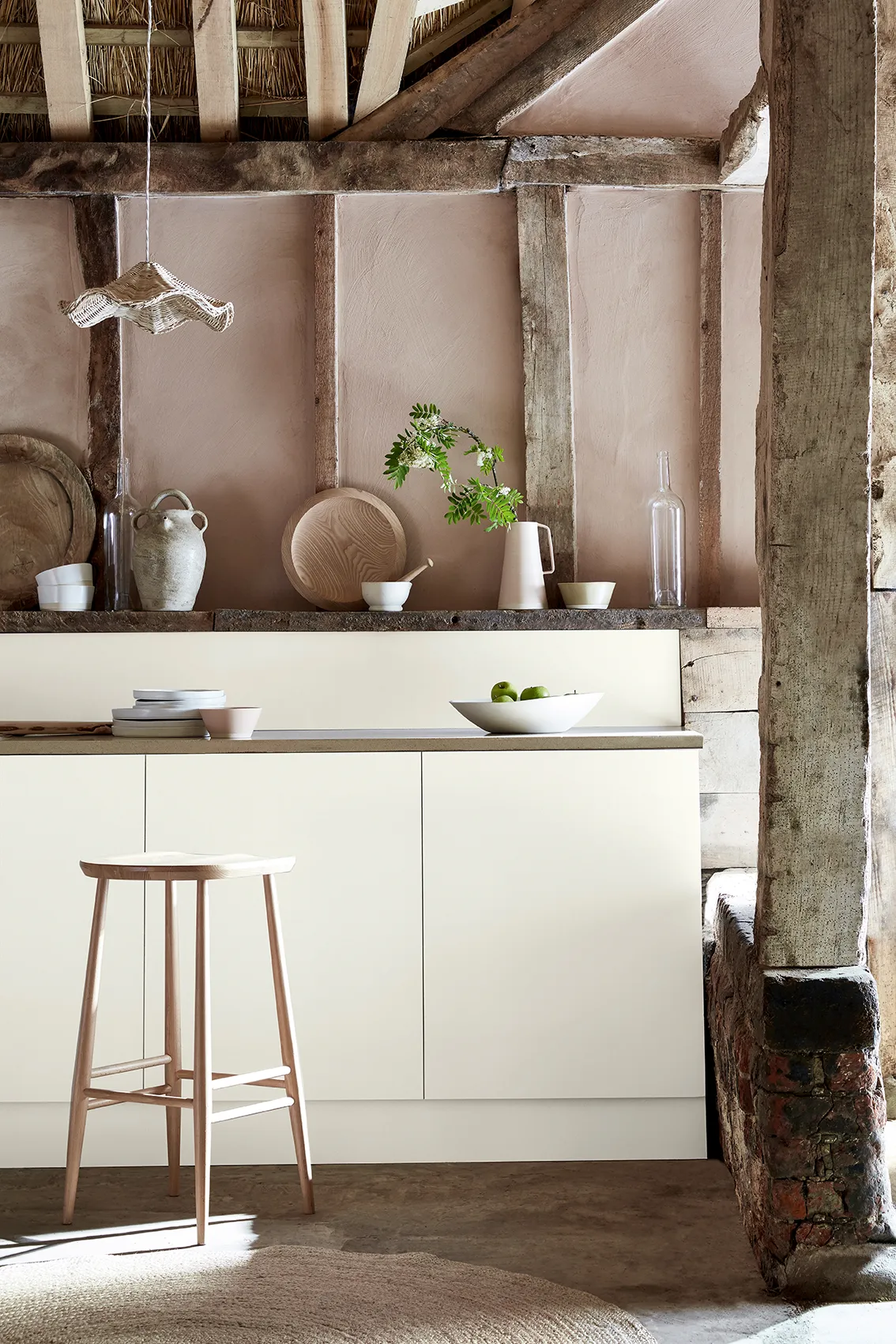The key ingredients for a classic kitchen...
1
The simple utility of the butler’s sink has enduring appeal and works in all kitchens – Henley kitchen, from £8,000, Neptune

2
A classic design in a contemporary colour, this pantry cupboard is part of the Shaker kitchen, from £20,000, Harvey Jones.

EXPERT TIP
Retrouvius, reclamation specialists
‘Consider using salvaged materials, such as these iroko worktops and reclaimed floorboards, when designing your kitchen. Not only do they carry patination and character from their previous life, the fact the surfaces are already textured takes the pressure off worrying about potential spillages and wine stains when cooking and entertaining.’
3
A kitchen made from reclaimed materials is not only unique, but kind to the environment, too. Visit Retrouvius’ website for products, inspiration and advice. An Aga is the ultimate kitchen workhorse. Aga 60, from £5,925, Aga.

EXPERT TIP
Ruth Mottershead. Marketing Director at Little Greene
‘For areas where steam or splashing are an issue, use an eggshell finish, such as our Intelligent Eggshell, which is formulated to resist moisture. The smart, soft sheen makes it very easy to look after. For kitchen cabinets, use satinwood, a hardwearing finish that will withstand the knocks of a busy home.’

Everything you need to know about lighting your kitchen
Rohan Blacker, Pooky Founder, reveals his top tips
When planning your kitchen, think about lighting from the start because retrospective planning can sometimes lead to compromise. If you want beautiful designer pendants or wall lights, as well as more functional LEDs built into recesses and cabinets, early planning will ensure the balance is right from the outset. Lighting choices can affect other decisions: if you have a strong directed light over a workstation, you might want to choose a non-reflective material for the work surface to avoid glare.
In many homes, a kitchen isn’t just a place for cooking, it’s also a dining room, a family room, a place for entertaining and sometimes even an office. Give yourself plenty of options to create different atmospheres for these activities. Choose practical task lighting for cooking and working, and softer mood lighting with dimmers for entertaining. Use separate circuits for each type of lighting so you can control the overall atmosphere in the room. When positioning lights, watch out for shadows: although tempting to think that a pendant light over a work surface will solve the issue of task lighting, don’t forget that if you’re cooking directly below a low-hanging pendant, you may end up working in your own shadow.

Decorative pendants in the kitchen are a growing trend. People are getting more creative and mixing feature lights, colours and materials to create their own unique feature lighting. Our recently launched Quintet [below], for example, is a beautiful contemporary pendant, perfect for hovering over kitchen islands and also great for task lighting. It’s a distinctive take on feature lighting, and a move away from individual pendants.
In terms of minimising your impact on the environment, start by using LED bulbs. If you’re concerned about the sustainability of materials, then you could focus your attention on raffia or jute products. However, these aren’t always the most suitable choices as they cannot be cleaned easily. Ceramic is relatively low impact, while also being wipeable, super-stylish and durable.
If you need more task lighting but are hoping to avoid hard wiring products in, you could always think about using a wall light that plugs into a normal socket and therefore avoids the need to chase cabling into the wall.